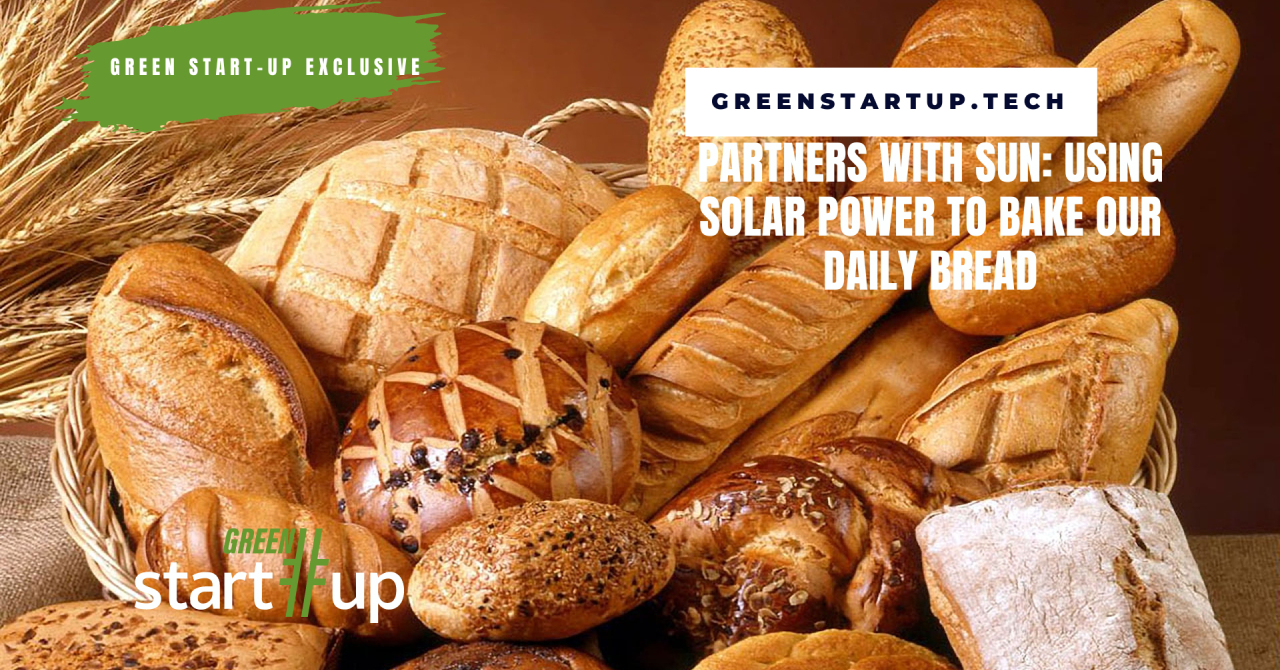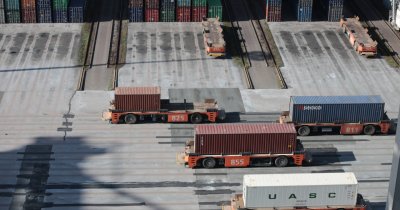What you'll learn in this story feature:
- How quickly does the solar oven return the initial investment
- What happens when the sunrays aren't strong enough to power the system
- How does this innovation differentiate itself from other offerings on the market
Regarding the solar-oven, from the get-go, Toufic told us that "this will revolutionize the way we process our food. We aim to be fossil-free and less dependent on external sources of energy."
Originally a biomedical engineer, Toufic Hamdan came up with the idea to utilize the power of the sunrays when he was on a trip from Cairo and had an overview of the desert. He thought that all of the solar power potential that the desert has could be utilized to produce energy for the food and beverages industry, so that companies working in this sector could eventually all be net-zero.
The failure before the success story
In 2016, Toufic and his then-fiancée started took matters into their own hands and started working on the first prototype for a solar-powered oven that would help bakeries lower production costs and lower their emissions output, as well.
Some 100.000 USD and two years of work later and the result was a failure. "We didn't get it, we failed", Toufic shared with us.
"We failed to reach to the 300 degrees Celsius, we tried almost everything."
When others might have thrown the towel in and gave up, him and his fiancée at the time tried again. In 2019, they were back on track working on another prototype with 150.000 USD provided by the family and this time, the effort was successful. In 2021, the system was fully working and it had the desired performance, which could enable it to reach the required temperature for baking.
One year later, in 2022, Partners with Sun started collaborating with Cleanergy and Energy Innovation Hub, two accelerators which granted the company 47.000 USD and also access to technical and business support.
While Toufic explained that there are some solar ovens in existence outside his own, he told us that those only work when you put the entire system outside and they are not intended for industrial use.

The solar-oven created by Partners with Sun, on the other hand, can be installed in bakeries, just like a conventional diesel or gas-powered oven where bread and bakery products are being made.
"There are solar-ovens that you need to put out in the sun, not in a bakery. You need to get the oven in a certain place, you can't bake industrial scale production outside", the founder of Partners with Sun told us.
The company's solar-powered oven can be installed virtually everywhere on Earth where there is sun power, whether that be in the desert or in a rural area and just in case sunrays don't hit a particular area in a certain day, there's nothing to worry about. Toufic explained that he designed the system in a way which allows the use of secondary energy sources, such as wood pellets in Romania, for example.
Alternative green power for continuous functioning
Also, excess energy produced from a very sunny day can be converted and stored as hydrogen, we were told. In a cloudy day, where solar power can't be used as a primary source, the stored hydrogen can be used to produce thermal power, which is then converted into electricity for the baking system.
To prove that the system really works and bread can be baked without the use of fossil fuels, Toufic started a collaboration with a bakery in Beirut, Lebanon, which currently still uses the solar-oven system successfully to make bread for the population.
Following on the initial success, Partners with Sun plans to move to other markets, as well, virtually everywhere on Earth, as Toufic told us that the European countries, Africa and America are among the next possible destinations where sustainable baking could be implemented.
To extend the business in their home country, the team behind Partners with Sun could reach two more medium-sized bakeries in Lebanon by the end of this year, further popularizing the clean-energy food production system.
"We might be in Saudi Arabia or Dubai next year, as people are changing the mentality regarding zero-emissions and clean energy", we learned from the representative.
"We have a vision to bury those fuel burners that power the food and beverage industry hopefully by 2030", is the dream of Toufic Hamdan regarding the decarbonization of the industry.

When it comes to the cost of the system, Toufic sees the less-than 230.000 USD solar-oven as a return-of-investment. Thus, in a country that enjoys sunny days throughout most of the year, such as Saudi Arabia, the solar-oven will pay itself back in less than five years. And after that, it will accelerate the profit made by the bakery that implemented it.
If we move up to a country where the sun isn't as commonly present on the sky, such as the Netherlands, the founder of Partners with Sun told us that a bakery there might use around 80 kilowatts of power to produce bread and other baking products. This means a price of around 50 USD per hour of baking. With around 73.000 USD saved every year on electricity for baking alone, the solar-powered oven could prove to be an even greater return-of-investment in that case, since Toufic explained that energy is more expensive in the Netherlands compared to Saudi Arabia.
Short and long-term plans for Partners with Sun
Toufic Hamdan wants his company to succeed, as for every entrepreneur. Building from his innovative solar-powered oven system, the founder of Partners with Sun hopes that, one day, his company will be a multinational serving millions of customers who want to tap into the power of the sun.
For now, though, 2023 seems to be a busy year for Toufic and his startup, as he is in talks with two more bakeries in Lebanon that want to implement the system, as well as one potential customer in the Netherlands and another on the other side of the ocean, in the US.
Also, by the end of this year, the founder wants to grow the team to a number of 50 employees and also to start covering the market in Dubai and Saudi Arabia.
 Mihai - Cristian Ioniță
Mihai - Cristian Ioniță












Any thoughts?